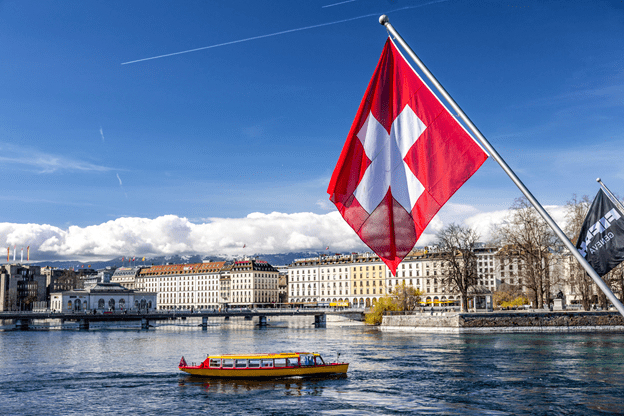
When it comes to global safety, Switzerland regularly ranks at the top. This is no coincidence: behind this reputation lies a system built on strict regulations, political stability, and a widespread civic-minded culture. But what exactly are the factors that contribute to the perception (and reality) of safety that defines the Swiss experience?
Neutrality and Political Stability as a Foundation
Swiss neutrality is not just a geopolitical stance—it’s a philosophy that has secured the country decades of peace, avoiding direct involvement in major global conflicts. This status has solidified Switzerland’s reputation as a stable and reliable land, both in the eyes of investors and foreign citizens.
The federal structure also allows for a high level of local autonomy, with cantons able to adapt laws to the needs of their territories. This decentralized model reduces tensions and increases citizen participation in public life.
Efficient Public Services and Modern Infrastructure
Another key element is the quality of public services. Transportation runs with almost millimetric precision, healthcare facilities are among the best in Europe, and schools enjoy an excellent international reputation. On top of this, the country boasts a modern, well-maintained infrastructure network.
These factors not only ensure a very high quality of life, but also convey a constant sense of order, reliability, and control—exactly what one seeks when talking about “safety” in a broader sense.
Mutual Trust and a Culture of Legality
One of the most surprising aspects, especially for those coming from different contexts, is the level of trust that exists between people. In Switzerland, it’s normal to leave your bicycle unattended outside a shop or forget your wallet on a train and find it later, untouched.
This trust is made possible by a cohesive social fabric and a legal system that works: those who break the rules are held accountable. There is virtually no perception of impunity, which creates a virtuous domino effect across all areas of daily life.
Clear Regulations in Sensitive Sectors
Switzerland enforces precise and transparent regulations in sectors considered sensitive, such as finance, medicine, the environment, and gambling. In the latter, for instance, state oversight is constant and strict. Legal Swiss casinos are a model of effective control: every operator is subject to regular inspections by federal authorities, spending limits are clear, access is restricted to adults, and responsible gambling is strongly encouraged.
This approach shows that safety is not just a matter of police or military presence, but also about transparent and forward-thinking management of economic activities—especially those involving citizens’ money.
Technology and Innovation at the Service of Citizens
Switzerland invests heavily in technology, always with a strong focus on privacy protection and cybersecurity. From digital identities to online banking services, everything is built on robust, up-to-date systems with high security protocols and fast support in case of issues.
Authorities work closely with universities and research centers to monitor emerging risks, particularly in the field of cybersecurity. This further reinforces the widespread sense that “nothing is left to chance.”
Collaboration Between Public and Private Sectors
Finally, a frequently overlooked yet crucial element is the synergy between the public and private sectors. In Switzerland, companies are not just regulated—they actively participate in building a system that works, through shared standards and constant dialogue with institutions.
This applies to every industry, from tourism to manufacturing, from healthcare to digital innovation. The culture of corporate responsibility is strong and deeply rooted, helping maintain a safe environment in the workplace and across professional settings.

































